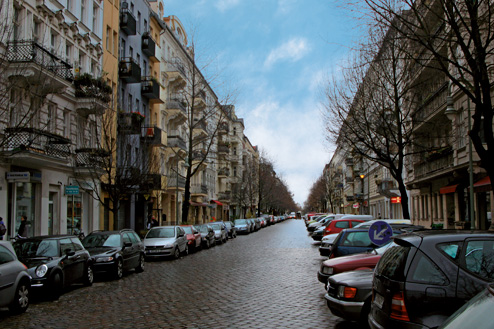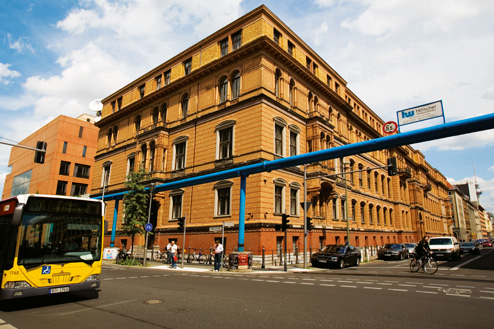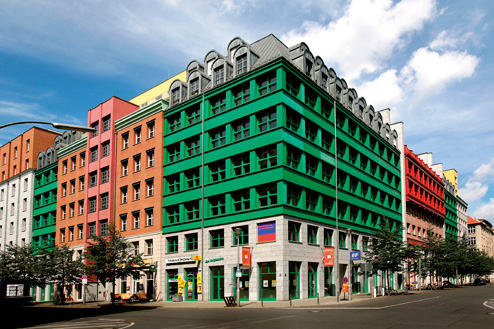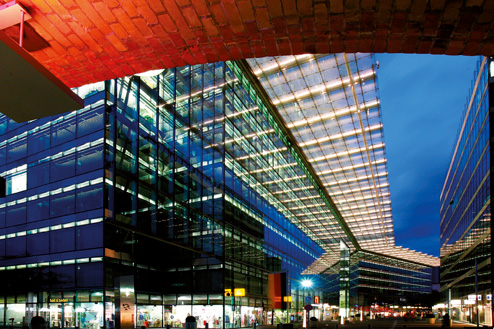Birth Certificate & Registration
If you’ve decided to have a baby, you’re among the minority in Germany, a country where deaths are outpacing new births. But this is good news for you because the German government sees it as a problem and has recently thrown more money and benefits at new parents. However, this being Germany, having a child also creates a host of paperwork. If the baby’s parents aren’t married, the father will have to formally acknowledge his fatherhood in order to have full parental rights – and responsibilities. Like all other official steps, the Einwohnermeldeamt or Bürgeramt in your neighbourhood can handle the formalities. This can be done before or after the birth, but is easiest and most convenient before there are nappies to change and mouths to feed.
Once the baby has graced you with its presence, you have a week to register the child with the German authorities. The hospital, birthhouse or midwife (if you had a home birth) will provide you with a piece of paper announcing your bundle of joy’s arrival. You’ll have to take this to the registry office, or Standesamt, in the district where the child was born. The registry office keeps records of all births, deaths, marriages and divorces, as well as name changes. The easiest way to find the right office is to first determine the district where the birth took place and then search under Standesamt on www.berlin.de. Unfortunately, there are no English pages to help with birth registration, but your midwife should know the ropes by heart.
Once registered, you’ll be given several original, certified copies of the birth certificate that you’ll need in order to complete even more paperwork. Be sure to also order an international birth certificate or two while in the office. They cost €7 each and include several languages, which means you can avoid having to translate a German passport for your own embassy.
While registering the birth, you may also run into Germany’s archaic naming laws. They require that parents only assign names that already exist to protect babies from unnecessary teasing during their childhood years. This isn’t as restrictive as it sounds – German parents must only prove that the name was given somewhere on earth at some point. Books or magazines can be used as proof or a name specialist, usually a local professor, can testify. Parents are freed from this regulation if at least one parent is from outside Germany, though pedantic bureaucrats may take the time to look up naming regulations in the foreign parent’s home country. If both parents aren’t present while registering the birth, be sure to have a statement that says the absent parent has agreed with whatever names you’ve chosen. Bring along the absent parent’s passport as additional proof.
Once the birth is registered, you’ll need to send an application for Kindergeld to the family unit of the local labour office known as the Bundesagentur für Arbeit. Anyone living legally with children under 18 is entitled to €153 each month per child. The German government will transfer the money to your account each month to help defray the costs of nappies, food and daycare – it’s that simple.
Berlin’s labour office is divided into three divisions depending on where you live. The easiest way to determine which labour office is yours is to visit the Arbeitsagentur (as it’s known) at www.arbeitsagentur.de. The site is only in German, but click on Partner vor Ort and enter your post code in the Ihre Postleitzahl field to discover who’s responsible for you. The phone number for all three of the family divisions, known as the Familienkasse, is the same: 01801 546337. The addresses are as follows:
• Familienkasse for the Arbeitsagentur Berlin Nord and Berlin Mitte Charlottenstrasse 90 10969 Berlin
• Familienkasse for the Arbeitsagentur Berlin Süd Silbersteinstrasse 30-34 12051 Berlin
You’ll then need to get identification for your new baby because few countries will allow children to enter without their own passport. Ask your local consulate for the exact steps, but it usually requires an international (or translated German) birth certificate, an application and the passport of at least one of the baby’s parents. And don’t forget passport pictures of your new child.
Finally, head to the Ausländerbehörde to get a residency permit for your newborn. You’ll have to show a birth certificate or passport for the baby, as well as your passport and residency permit. It’s a good idea to bring along the passport and any relevant visas and permits for both parents just in case. If you’re staying in the country legally, getting similar papers for your child should be a mere formality.
Once the baby has graced you with its presence, you have a week to register the child with the German authorities. The hospital, birthhouse or midwife (if you had a home birth) will provide you with a piece of paper announcing your bundle of joy’s arrival. You’ll have to take this to the registry office, or Standesamt, in the district where the child was born. The registry office keeps records of all births, deaths, marriages and divorces, as well as name changes. The easiest way to find the right office is to first determine the district where the birth took place and then search under Standesamt on www.berlin.de. Unfortunately, there are no English pages to help with birth registration, but your midwife should know the ropes by heart.
Once registered, you’ll be given several original, certified copies of the birth certificate that you’ll need in order to complete even more paperwork. Be sure to also order an international birth certificate or two while in the office. They cost €7 each and include several languages, which means you can avoid having to translate a German passport for your own embassy.
While registering the birth, you may also run into Germany’s archaic naming laws. They require that parents only assign names that already exist to protect babies from unnecessary teasing during their childhood years. This isn’t as restrictive as it sounds – German parents must only prove that the name was given somewhere on earth at some point. Books or magazines can be used as proof or a name specialist, usually a local professor, can testify. Parents are freed from this regulation if at least one parent is from outside Germany, though pedantic bureaucrats may take the time to look up naming regulations in the foreign parent’s home country. If both parents aren’t present while registering the birth, be sure to have a statement that says the absent parent has agreed with whatever names you’ve chosen. Bring along the absent parent’s passport as additional proof.
Once the birth is registered, you’ll need to send an application for Kindergeld to the family unit of the local labour office known as the Bundesagentur für Arbeit. Anyone living legally with children under 18 is entitled to €153 each month per child. The German government will transfer the money to your account each month to help defray the costs of nappies, food and daycare – it’s that simple.
Berlin’s labour office is divided into three divisions depending on where you live. The easiest way to determine which labour office is yours is to visit the Arbeitsagentur (as it’s known) at www.arbeitsagentur.de. The site is only in German, but click on Partner vor Ort and enter your post code in the Ihre Postleitzahl field to discover who’s responsible for you. The phone number for all three of the family divisions, known as the Familienkasse, is the same: 01801 546337. The addresses are as follows:
• Familienkasse for the Arbeitsagentur Berlin Nord and Berlin Mitte Charlottenstrasse 90 10969 Berlin
• Familienkasse for the Arbeitsagentur Berlin Süd Silbersteinstrasse 30-34 12051 Berlin
You’ll then need to get identification for your new baby because few countries will allow children to enter without their own passport. Ask your local consulate for the exact steps, but it usually requires an international (or translated German) birth certificate, an application and the passport of at least one of the baby’s parents. And don’t forget passport pictures of your new child.
Finally, head to the Ausländerbehörde to get a residency permit for your newborn. You’ll have to show a birth certificate or passport for the baby, as well as your passport and residency permit. It’s a good idea to bring along the passport and any relevant visas and permits for both parents just in case. If you’re staying in the country legally, getting similar papers for your child should be a mere formality.













